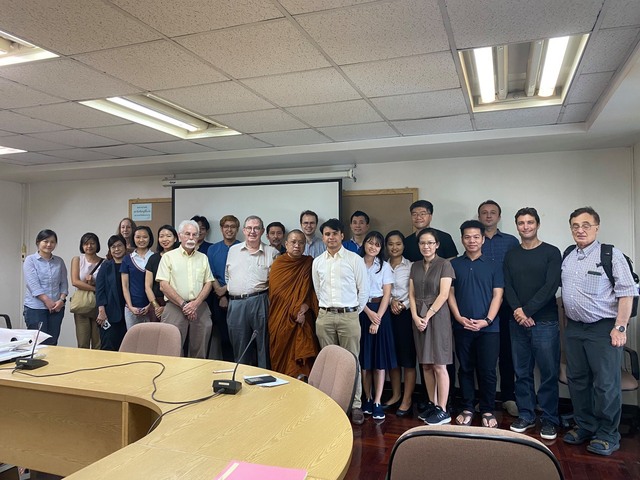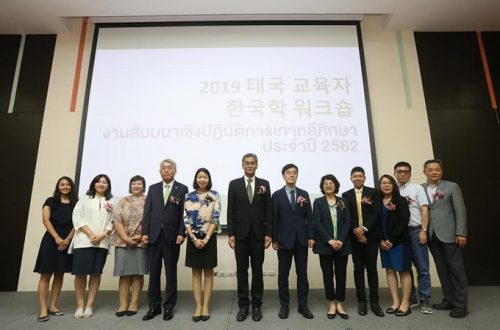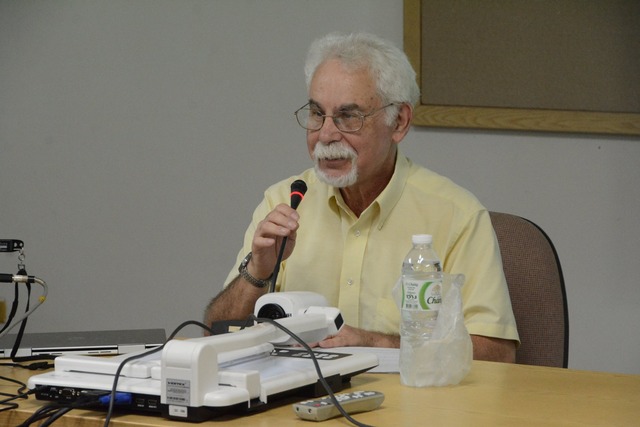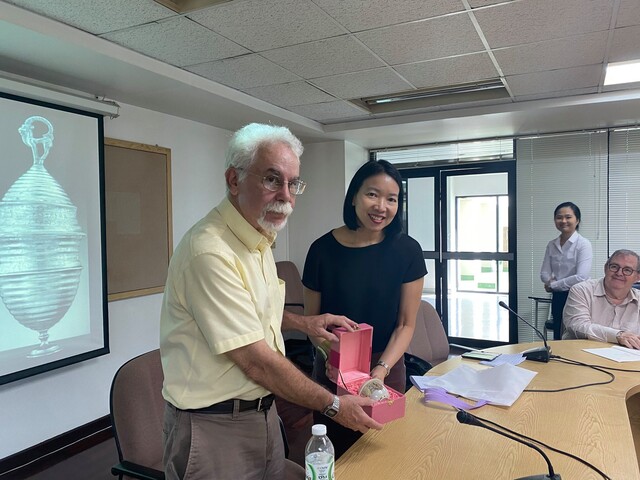
Welcoming Professor Richard Salomon
During January 20-February 15, 2020, the Faculty of Arts welcomed Professor Richard Salomon from the Department of Asian Languages and Literature, University of Washington to join our South Asian Language Section, Department of Eastern Languages as visiting professor. Supported by Khyentse Foundation, the purpose of Professor Salomon’s visit is to enhance academic and research excellence in the area of Buddhist studies.
At the Faculty of Arts, Professor Salomon, who specializes in recently discovered Gandhari Buddhist manuscripts, conducted research with Assistant Professor Chanwit Tudkaew and Dr. Natchapol Sirisawad. He also shared his knowledge with the public by giving two talks on Twenty-five Years of Gandhāran Studies: What have we learned? (February 1) and Gandharan relics and Buddhist reliquaries: What they teach us about Buddhist history? (February 14).
The knowledge of the manuscripts is hoped to lead to new perspectives on how the Buddha’s teachings were presented and transmitted in ancient times. It can also lead to comparative studies on Buddhist teachings between the Gandhari manuscripts and Pali Canon. Such knowledge will broaden and deepen our understanding of early Buddhist teachings and enhance our appreciation of their diversity which will promote non-sectarian understanding of early Buddhism.
In addition to his talks, Professor Salomon also participated in the Workshop: Block Seminar in Buddhist Manuscripts and Buddhist Sanskrit Literature (February 5, 2020) which was also joined by Professor Jens-Uwe Hartmann, University of Munich, LMU München Germany, Professor Jan Nattier, University of California, Berkeley, and Professor Peter Skilling, a Khyentse fellow.
Our Faculty of Arts was honored to host such renowned scholars in Buddhist studies. The knowledge and experience received is invaluable. As Buddhist teachings have become an important part of various fields in humanities, more related areas are yet to be explored, not only in History, but also in Philosophy, Psychology, Linguistics, and Literature. It is hoped that the above events will inspire Thai students and scholars to take interest in Buddhist manuscripts. The Faculty of Arts also thanks the Khyentse Foundation for its generous support in promoting non-sectarian understanding of Buddhism and the study of Buddhist teachings. Attempts are continually being made to expand this interest in Buddhism to as many fields of the humanities as possible.

You May Also Like

Mamaskatch
November 13, 2019
Featured work in BBC Thai
October 31, 2019

